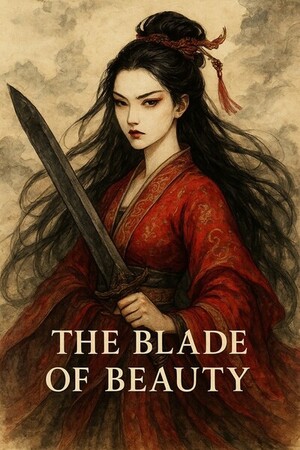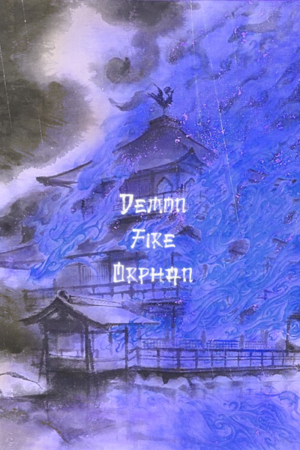Chapter 36:
The Hundred Fragrances Pavilion
I, a Hermaphrodite, Live by Taking Lives
The so-called yaozi—brothel—was in fact a grand hall, formally named the Pavilion of a Hundred Fragrances. At first hearing, the name sounded like some delicate fruit, but in truth it was far from fresh or innocent. Its history was hardly clean. Once, it had been a boy-house in Shaodu, until the authorities raided and confiscated it. By rights it should have been demolished, but someone powerful in the palace fancied the site’s auspicious feng shui. With a few changes, it became what it was now.
When Su Yue first suggested we “visit the brothel,” I had nearly leapt out of my skin. Only after her hurried explanation did I breathe again. Recently the Pavilion was hosting a “Fragrance Festival,” drawing visitors from across the city. Su Yue longed to attend, but General Su’s rules were strict: a daughter could not be seen in such a place. Frustrated, she hatched a plan—if she dragged someone along as her shield, she could slip in disguised.
So that was why she had clung to me at first sight. I was her convenient pretext.
The next morning she arrived early, pounding on my door. Today she looked utterly transformed—every inch a noble miss. Her hair was parted into two high knots, tied with green silk cords. A fringe fell across her brow, set with a beauty mark between her brows. From her ears dangled plum-blossom tassels, and a golden phoenix hairpin swayed above her crown. She had dressed as though for marriage, though she claimed we were merely going to sniff incense. I did not know whether to laugh or cry.
Next to her, I looked like a beggar. In my current female form, I had asked Nanny Zhang to hastily prepare women’s clothing for me. Standing beside Su Yue’s finery, I was pitifully plain.
“You can’t wear this! Absolutely not!” She circled me, hands on her hips. “Leave it to me—I’ll dress you myself.”
What followed, I would rather never recall.
I, once a man of seven feet, was pinned in a chair by a slip of a girl, subjected to painted brows and powdered cheeks. Worst of all—I let it happen. Her left hand pressed me down by the shoulder, unmovable, while her right hand flitted with brush and rouge. At last she clapped her hands in triumph. “Perfect! Gorgeous! Sister Zhang, look at my handiwork!” She shoved a mirror at me.
What could I do? I averted my eyes, kneading my sore wrist, glaring at her with all the venom I could muster.
“Sorry!” she cried, hurrying over to massage my wrist. “I’m used to roughhousing with boys. I forgot you’re delicate. Did I hurt you? Let me blow on it—”
“…”
By the time she was finished, I looked less like a wanderer and more like a lady ready for court. We set out westward, soon arriving at Qiong River, where a three-storied building rose with flying eaves and painted beams. Even from afar the air was saturated with scent. A plaque swung above the doors, its characters bold: Pavilion of a Hundred Fragrances.
As we approached, a servant stepped forward. A table beside him bore seven or eight bronze censers.
“Young mistresses, are you here for the Fragrance Festival?”
“Yes,” Su Yue declared, striding ahead.
“Then present your entrance incense,” the boy said smoothly, blocking her path.
“Entrance incense?”
“Our master decreed just yesterday: every guest must offer a fragrance, rare and unique, to pass inside. Otherwise, no entry.” He lowered his voice conspiratorially. “Forgive us, but the place is too crowded. Visitors from Xi Han, Bei Ji, Dongyi, even the Eight Desolations have flooded in. We need a threshold.” He gestured at the censers. “So—your incense, please.”
Su Yue bristled. “Yesterday there was no such rule!”
“True. Yesterday there wasn’t. But today there is. New rule—set this very morning.”
Fury rose in her; she rolled her sleeves to strike.
“Wait, I have something.” Panicked, I stopped her. From my robe I withdrew a pinch of Fanghua incense. I sprinkled it into a censer. At once, the air bloomed with fragrance, overwhelming all others.
The boy’s eyes widened. “I’ve never smelled anything like this. May I ask its name?”
I dared not reveal it. Fanghua was nearly extinct, its worth beyond reckoning. To speak its name would invite trouble. “It’s nothing rare,” I lied lightly. “Just a blend I concocted. May we enter now?”
He bowed us through at once.
Inside was another world. From outside it looked three-storied, but in truth the foundation plunged underground, adding two more hidden levels. Five in all, arranged by rank: the higher the guest, the higher the floor. Perhaps impressed by my incense, the boy ushered us directly to the top—the fifth floor.
From there the view was sweeping. Below, the hall teemed with people, all clad in finery. Each held a censer, their smoke rising in a mingling cloud. Some scents calmed the mind, others wrung the heart, others yet tugged at memory like invisible hands.
But I was used to Fanghua. To me, the perfumes were little more than whispers.
Every strange and marvelous fragrance under heaven could be found here.
Su Yue leaned on the railing, eyes sparkling. “They say a great figure will arrive today. That’s why I came.”
“Who?” I asked.
“Have you heard of Lady Mingzhu of Dongyi?”
Lady Mingzhu—the femme fatale of our age.
It was said she was breathtaking, beloved beyond reason by King Wusha of Dongyi. Whatever she desired, he would obtain at any cost, burdening the people with taxes, bleeding the land dry. She suffered from headaches, unable to sleep at night, so the king ordered this grand festival to seek a cure through incense.
By tradition, beauty is matched with handsome men—like Zhao Jin or Yu Hanjun, whose looks I detested yet could not deny. But King Wusha was grotesque. A giant of nearly two meters, with a horse-like face so ugly children would scream. His throne was tainted too: not of royal blood, he had seized power by force, slaying the feeble King Zhaofu.
Many whispered his cruelty was born of his ugliness. Denied affection in youth, he grew twisted, paranoid. As king he filled his harem, only to slaughter its beauties one by one, convinced none truly loved him. A glance, a blink—he would see mockery, and tear out the offender’s eyes.
Pitiful women. Yet aside from this, he ruled surprisingly well. He lightened taxes, drilled his armies, subdued three savage tribes, and stabilized the realm. Thus, though the people feared him, they also praised him as better than his predecessor.
Lady Mingzhu had appeared just a year ago. From the instant he saw her, King Wusha had been smitten. He made her his consort, and she reveled in his favor. Bold to the point of scandal, she once strode into morning court in nothing but an inner gown, pale legs exposed. Ministers quaked, staring at the ground, muttering prayers for their ancestors’ peace.
But the king only roared with laughter and adored her all the more.
They said it was “scoundrel meets seductress, a perfect match.” But I saw it differently. The king’s concubines had always tiptoed, terrified of his fragile pride. Lady Mingzhu, in contrast, blazed like fire, unashamed, unafraid. To him, her brazenness was truth itself. That was why he loved her.




Please sign in to leave a comment.